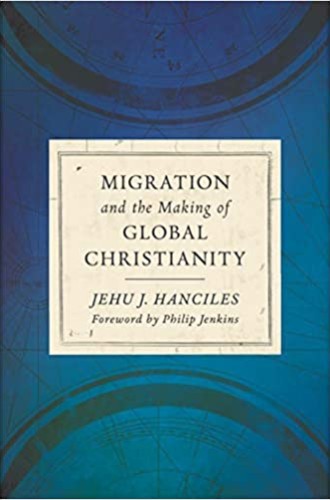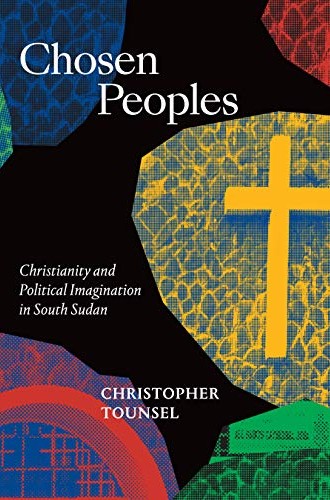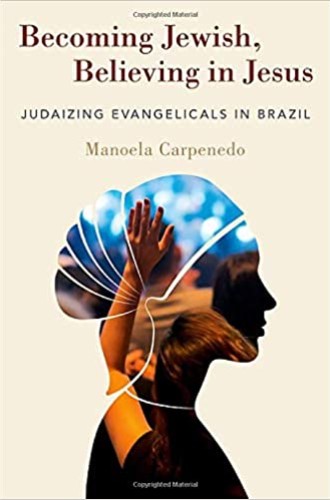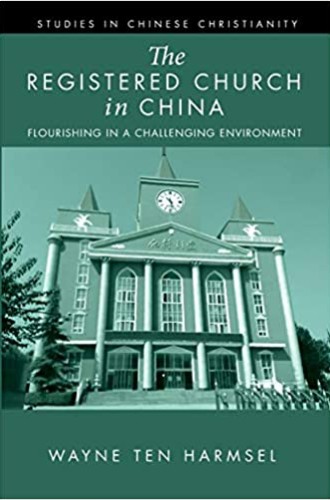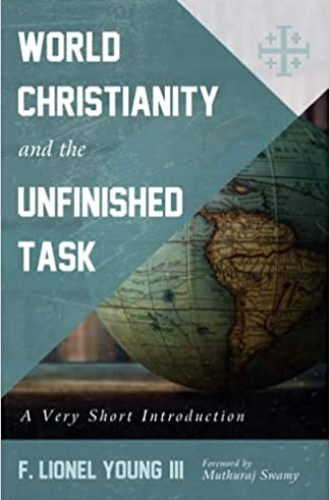Take & Read: Global Christianity
Five new books about the lives and faith of Christians around the world
Those who write the story of Christianity commonly focus on deliberate and conscious mission. But that is misleading. Repeatedly, the church has spread through actions that seem unrelated to any religious intent. People move and migrate, sometimes reluctantly, and they take their religion with them, often with no particular intention of sharing it beyond their own community. Still, such people are creating a bridgehead for their faith. Believers arrive first, and the missionaries follow. Never underestimate the power of happenstance—or dare we call it Providence?
In an admirably ambitious study, Jehu J. Hanciles illuminates the relationship between Migration and the Making of Global Christianity (Eerdmans). To some extent, his work should be categorized as historical, as it spans the first 1,500 years of the faith. But he never loses his central focus on the core theme of migration, which he rightly presents as essential to understanding global Christianity in any era. Hanciles frequently refers to his other writings on modern-day African diasporas, and he never lets us forget the links and parallels that bind the early centuries to our own day.
Read our latest issue or browse back issues.
Hanciles redraws the historical maps by which we understand the Christian story. He rightly places the emphasis on borderlands and frontier states—those territories that stand uncomfortably poised between the great empires and states, and which so often prove vital for the preservation and transmission of faith. This is an adventurous transnational study that demands to be read and cited.
Hanciles’s book makes us rethink literal and metaphorical borders as well as the mixed and fluid nature of societies in an age of migration and global consciousness. In every sense, he is discussing border crossers, people with feet in two or more cultural camps, people who of necessity circulate easily between languages and identities.
Such themes of identity surface frequently, and intriguingly, in many current studies of emerging churches in the Global South. How, for instance, should Christian societies find the values and political beliefs they need in order to organize states in conflict-torn areas of the globe? How far can they plausibly reproduce the thought-world of the Old Testament? This is the issue addressed by Christopher Tounsel in Chosen Peoples: Christianity and Political Imagination in South Sudan (Duke University Press).
Christians in the nation of Sudan struggled for many years against an oppressive Islamic regime until the Christian-dominated regions secured independence in 2011. For many observers, this represented a triumph of theologies of liberation, an exodus of chosen peoples. But the new nation of South Sudan was deeply troubled, and it was ravaged by new fighting between ethnic groups that notionally shared the same creeds. Any concept of pan-Christian solidarity evaporated.
In a study that will resonate with anyone familiar with the political language of medieval Christian Europe or the 19th-century United States, Tounsel shows how biblical and religious language utterly permeated political rhetoric and self-fashioning in South Sudan. Tragically, the martial tales and heroes of the Old Testament have proved particularly inspiring for these latter-day warriors, as have visions of theocracy. Chosen Peoples is richly instructive for understanding the influence of the Bible in societies where it represents a powerful and challenging new presence.
Observers of global Christianity are often struck by how emerging churches reproduce the controversies of the very early church. The debates and schisms of the second and third centuries echo faithfully through the 21st. That is especially true in understandings of the Old and New Testaments and the borders that divide them. From earliest times, at least some Christians have emphasized the Old Testament as equal or even superior to the New and have followed the Jewish dietary laws and the sabbath. Some now even insist on circumcision. Although not a huge phenomenon in raw numbers, Black Jewish sects are a familiar and well-studied presence across modern Africa.
Similar trends have often affected the rising evangelical and Pentecostal churches of Latin America, although these are less familiar to scholars. Manoela Carpenedo’s Becoming Jewish, Believing in Jesus: Judaizing Evangelicals in Brazil (Oxford University Press) is an ethnographic study of a particular sect in a country that hosts many similar movements. Brazil is home to the several-million-member Universal Church of the Kingdom of God, whose worldwide headquarters are in a building that incorporates a replica of the ancient Second Temple in Jerusalem. Many Brazilian sects espouse the language of “covenant” and “Israelite” and aspire to the promises offered in the Old Testament. In the Latin American context, both Seventh-day Adventists and Jehovah’s Witnesses have spawned breakaway sects that enthusiastically Judaize.
In the charismatic group that Carpenedo studies, Judaizing goes far beyond the merely rhetorical. These believers have moved way down the road to adopting full-fledged Jewish identities. Over time, their outlook and practices have drawn ever closer to Judaism in its Orthodox form.
As with their African counterparts, it remains to be seen how these would-be Jews will respond to having that status treated skeptically by actual Jews with the appropriate ethnic credentials. While such Judaizing may pose problems for defining Christian identity, it really causes very few questions or concerns for Jews themselves, who have strict and well-known criteria for recognizing Jewish status and performing valid conversions. But as a current within global Christianity such Judaizing demands study, and Carpenedo has made a valuable contribution. Her extensive firsthand accounts of the lives of believers are both interesting and moving.
Scholars of religion have a natural tendency to look at the daring or experimental edges of the story, sometimes to a degree that means underplaying the more mainstream expressions of faith. That is particularly true in China, where it is easy to find accounts of independent (and extralegal) house churches or rising sects. Meanwhile, tens of millions of Christians belong to Three-Self churches that obediently register with the government and do their best to observe the state’s increasingly stringent laws and regulations.
Based on years of experience as a pastor in the Christian Reformed Church, Wayne Ten Harmsel presents a fascinating study of The Registered Church in China: Flourishing in a Challenging Environment (Pickwick). As conditions for Christians become harsher in that country and official pressures toward Sinicization become more aggressive, the word challenging sounds ever more like a euphemism.
The greatest contribution of Ten Harmsel’s crisp and sympathetic study is to give readers a sense of the ordinary realities of lived faith in those churches. Outsiders might be tempted to dismiss the church leaders and members as compromisers, or even sellouts, but they are nothing of the sort. Much like the “border” people Hanciles describes, these people are struggling constantly to balance two competing identities: that of a loyal Chinese citizen, subject to the control of a one-party state, and that of a Christian who has no earthly commonwealth. These believers walk a delicate path as they try to live Christian lives without compromising their faith.
Let me conclude with an introduction. Over the past quarter century, plenty of authors have offered broad surveys of the rapidly changing state of global Christianity, and some have been impressive. One new work that really stands out for its scope and accessibility is World Christianity and the Unfinished Task: A Very Short Introduction (Cascade) by F. Lionel Young III. This book does an excellent job of compression, while at the same time succeeding fully in sketching recent trends and identifying pressing issues. Part of that success lies in Young’s ability to incorporate personal observations and stories, and so effectively.
Read Joshua Jipp's New Testament selections, Susan Willhauck's practical theology selections, and Anne Blue Wills's American religious history selections.
A version of this article appears in the print edition under the title “Take & Read: Global Christianity.”


